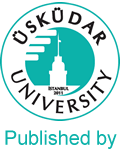Years
2021
2020
Categories
Authors
ARTICLES
Original Article
The Effect of Memorizing the Quran on Cognitive Functions
Turkish Title : The Effect of Memorizing the Quran on Cognitive Functions
Sirin Sumeyye,Metin Barıs,Tarhan Nevzat
JNBS, 2021, 8(1), p:22-27
Background: Memorizing the Quran is an education continuing from the early periods of Islamic education until today. Although this education started in the past to protect the Quran, nowadays, it is continuing as a tradition. Aims and Objectives: The main purpose of this study is to investigate the effects of memorizing the Quran on certain cognitive functions of individuals. Materials and Methods: The scope of the study is limited to 18 female and 15 male students who have been studying in the 5th, 6th, and 7th grades of Anatolian Imam Preacher Secondary Schools in different districts of İstanbul. After Demographic Information Questionnaire was used, California Verbal Learning Test children’s version, Wechsler Memory Scale revised visual reproduction subtest, Trail Making Test, and Verbal Fluency Test were applied twice to collect data about individuals before and after memorization training. Results: Findings demonstrated that there is a statistically significant difference
in verbal learning, visual learning, attention speed, and phonemic and semantic fluency before and after memorization training. Conclusion: In conclusion, memorizing the Quran has positive impacts on verbal and visual memory, attention processes, and lexical and semantic fluency of individuals. It is important with regard to eliminate emptiness in the literature. In future studies, it can be investigated the effects of textual memorization in a foreign language on brain structures and connections.
Background: Memorizing the Quran is an education continuing from the early periods of Islamic education until today. Although this education started in the past to protect the Quran, nowadays, it is continuing as a tradition. Aims and Objectives: The main purpose of this study is to investigate the effects of memorizing the Quran on certain cognitive functions of individuals. Materials and Methods: The scope of the study is limited to 18 female and 15 male students who have been studying in the 5th, 6th, and 7th grades of Anatolian Imam Preacher Secondary Schools in different districts of İstanbul. After Demographic Information Questionnaire was used, California Verbal Learning Test children’s version, Wechsler Memory Scale revised visual reproduction subtest, Trail Making Test, and Verbal Fluency Test were applied twice to collect data about individuals before and after memorization training. Results: Findings demonstrated that there is a statistically significant difference
in verbal learning, visual learning, attention speed, and phonemic and semantic fluency before and after memorization training. Conclusion: In conclusion, memorizing the Quran has positive impacts on verbal and visual memory, attention processes, and lexical and semantic fluency of individuals. It is important with regard to eliminate emptiness in the literature. In future studies, it can be investigated the effects of textual memorization in a foreign language on brain structures and connections.
Original Article
Are flashbulb memories preserved in alzheimer’s disease?
Turkish Title : Alzheimer hastalığında flaşbellek korunuyor mu?
Çebi Merve,Metin Baris,Çevre Burak,Tarhan Nevzat
JNBS, 2020, 7(1), p:21-26
Alzheimer’s Disease is a neurodegenerative disorder characterised by a progressive memory loss. However, it is not clear whether flashbulb memories- a subgroup of autobiographical memories with an emotional component- are influenced to the same extent in Alzheimer’s Disease. In this study, we investigated flashbulb memory performances of 29 early stage Alzheimer’s Disease patients as compared to healthy young controls. In addition, we measured the verbal memory performance of patients by using Verbal Memory Processes Test. Results showed that although the patient group displayed a significant impairment in verbal memory encoding, their flashbulb memory performance was not significantly different from healthy young controls. In conclusion, our study supports the notion that flashbulb memories can have a special neural network and suggests that flashbulb memories are preserved in early stage Alzheimer’s Disease.
Amaç: Alzheimer Hastalığı, ilerleyici bellek bozukluğuyla karakterize bir nörodejeneraitf hastalıktır. Fakat, otobiyografik belleğin bir alt grubu olarak kabul edilen ve emosyonel içeriği olan flaşbelleğin Alzheimer hastalığında aynı derecede etkilenip etkilenmediği yeterince açık değildir. Yöntem: Bu çalışmada, 29 erken evre Alzheimer hastalığı olan katılımcıların flaşbellek performansı incelenmiş ve sağlıklı genç yetişkinlerle karşılaştırılmıştır. Ek olarak, hasta grubunun sözel bellek performansı Öktem Sözel Bellek Süreçleri Testi kullanılarak ölçülmüştür. Sonuç: Yapılan analizler sonucuda, Alzheimer hastalığı olan grubun sözel bellek kayıt sürecinde anlamlı kayıp bulunmasına ragmen flaşbellek performansları açısından sağlıklı genç yetişkinler ile aralarında anlamlı fark bulunmamıştır. Tartışma: Sonuç olarak, bu çalışma flaşbelleğin özel bir nöral şebekeye sahip olduğu görüşünü destekleyerek, erken evre Alzheimer Hastalığında flaşbellek performansının korunuyor olabileceğini düşündürmektedir.
Original Article
Attitudes of turkish psychiatrists regarding transcranial magnetic stimulation
Turkish Title : Türkiyeli psikiyatrların transkraniyal manyetik uyarım tedavisine yönelik tutumları
Ünsalver Barış Önen,Evrensel Alper,Sayar Gökben Hızlı,Karamustafalıoğlu Oğuz,Tarhan Nevzat
JNBS, 2020, 7(1), p:37-41
Transcranial Magnetic Stimulation (TMS) is not widely used in the world. Besides financial constraints like limited allocation of funds for psychiatric clinics, psychiatrists’ knowledge and attitudes regarding TMS may limit its widespread use. Therefore, this survey study aimed to examine the knowledge and attitudes of Turkish psychiatrists towards TMS. An online survey that was developed by the researchers containing 26 questions about physicians’ demographic data and their knowledge and attitudes towards TMS was sent to a closed e-mail group of psychiatrists and assistant psychiatrists. The study sample comprised 46 women and 61 men. Having knowledge about TMS statistically significantly affected participants’ approaches to accept TMS as a promising treatment, approve the spread of TMS as a treatment modality, desire to have more information about the mechanism of action of TMS (p=0.006; p=0.019 and p=0.013, respectively), whereas it didn’t statistically significantly affect their approaches to accept TMS as an effective treatment method, consider TMS as a misleading treatment for patients, use TMS only in the treatment of treatment-resistant depression patients (p=0.060, p=0.065, and p=0.136, respectively). Most of the psychiatrists who completed the survey in Turkey had a positive view of TMS and wanted to increase their knowledge. It may be appropriate to increase the number of presentations on TMS therapy at psychiatry meetings and encourage residents to make observations in clinics where TMS is administered, during psychiatric residency.
Transkraniyal Manyetik Uyarım (TMU) dünyada yaygın kullanılan tedavi yöntemlerinden biri değildir. Psikiyatrik tedaviler için ayrılan bütçenin kısıtlılığı yanısıra psikiyatristlerin TMU’ya dair bilgileri ve tutumları da TMU’nun yaygın kullanımını olumsuz etkileyebilir. Bu anket çalışmasında Türkiye’de çalışan psikiyatri asistanları ve uzmanlarının TMU’ya yönelik tutum ve bilgilerinin ölçülmesi amaçlanmıştır. Araştırmacıların geliştirdiği ve hekimlerin sosyodemografik bilgileri, TMU’ya yönelik bilgileri ve tutumlarını ölçen 26 soruluk anket psikiyatri asistan ve uzmanlarının üye olduğu kapalı bir e-posta grubuna yönlendirilmiştir. Örneklem 46 kadın ve 61 erkekten oluşuyordu. TMU’ya dair bilgi sahibi olmak, katılımcıların TMU’yu umut vaat eden bir tedavi yöntemi olarak görmesini, TMU’nun bir tedavi olarak yaygınlaşmasını onaylamayı ve TMU’nun etki mekanizması hakkında daha fazla bilgi sahibi olma isteğini istatistiksel anlamlı olarak etkiliyordu (p=0.006; p=0.019 and p=0.013);ancak, TMU’yu etkili bir tedavi yöntemi olarak kabul etmeyi, TMU’yu hastaları yanıltmaya yönelik bir tedavi olarak görmeyi ve TMU’yu sadece tedaviye dirençli olgularda kullanmayı anlamlı olarak (p=0.060, p=0.065, and p=0.136). Türkiye’den katılımcı hekimlerin çoğunun TMU’ya dair olumlu fikirleri olduğu ve TMU’ya dair daha fazla bilgi sahibi olmak istedikleri gözlemlendi. Bilimsel toplantılarda TMU’ya dair sunumların sayısını arttırmak ve asistanlık eğitimleri sırasında TMU uygulanan kliniklerde rotasyon imkanı sağlamak faydalı olabilir.
| ISSN (Print) | 2149-1909 |
| ISSN (Online) | 2148-4325 |
2020 Ağustos ayından itibaren yalnızca İngilizce yayın kabul edilmektedir.


